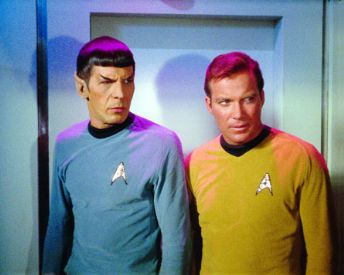
The final post in our neuroscience extravaganza should come as no surprise: David Brooks’ editorial in yesterday’s NY Times, “The New Humanism.” Building on the comments he made in last week’s interview with The Daily Beast, Brooks synthesizes some of the recent neuroscience findings in a characteristically digestible way, offering us another preview of his new book, which came out yesterday. Not much to add here, and less to subtract – I’ve reposted almost all of it – suffice it to say, you have to go out of your way not to be struck by how much Brooks’ insights jive with a New Testament view of things:
[America has] had a financial regime based on the notion that bankers are rational creatures who wouldn’t do anything stupid en masse. For the past 30 years we’ve tried many different ways to restructure our educational system — trying big schools and little schools, charters and vouchers — that, for years, skirted the core issue: the relationship between a teacher and a student.
I’ve come to believe that these failures spring from a single failure: reliance on an overly simplistic view of human nature. We have a prevailing view in our society — not only in the policy world, but in many spheres — that we are divided creatures. Reason, which is trustworthy, is separate from the emotions, which are suspect. Society progresses to the extent that reason can suppress the passions. This has created a distortion in our culture. We emphasize things that are rational and conscious and are inarticulate about the processes down below. We are really good at talking about material things but bad at talking about emotion.
When we raise our kids, we focus on the traits measured by grades and SAT scores. But when it comes to the most important things like character and how to build relationships, we often have nothing to say. Many of our public policies are proposed by experts who are comfortable only with correlations that can be measured, appropriated and quantified, and ignore everything else.
Yet while we are trapped within this amputated view of human nature, a richer and deeper view is coming back into view. It is being brought to us by researchers across an array of diverse fields: neuroscience, psychology, sociology, behavioral economics and so on.
This growing, dispersed body of research reminds us of a few key insights. First, the unconscious parts of the mind are most of the mind, where many of the most impressive feats of thinking take place. Second, emotion is not opposed to reason; our emotions assign value to things and are the basis of reason. Finally, we are not individuals who form relationships. We are social animals, deeply interpenetrated with one another, who emerge out of relationships.
This body of research suggests the French enlightenment view of human nature, which emphasized individualism and reason, was wrong. The British enlightenment, which emphasized social sentiments, was more accurate about who we are. It suggests we are not divided creatures. We don’t only progress as reason dominates the passions. We also thrive as we educate our emotions.
When you synthesize this research, you get different perspectives on everything from business to family to politics. You pay less attention to how people analyze the world but more to how they perceive and organize it in their minds. You pay a bit less attention to individual traits and more to the quality of relationships between people.
—————-Limerence: This isn’t a talent as much as a motivation. The conscious mind hungers for money and success, but the unconscious mind hungers for those moments of transcendence when the skull line falls away and we are lost in love for another, the challenge of a task or the love of God. Some people seem to experience this drive more powerfully than others.
When Sigmund Freud came up with his view of the unconscious, it had a huge effect on society and literature. Now hundreds of thousands of researchers are coming up with a more accurate view of who we are. Their work is scientific, but it directs our attention toward a new humanism. It’s beginning to show how the emotional and the rational are intertwined.
I suspect their work will have a giant effect on the culture. It’ll change how we see ourselves. Who knows, it may even someday transform the way our policy makers see the world.

COMMENTS
Leave a Reply













